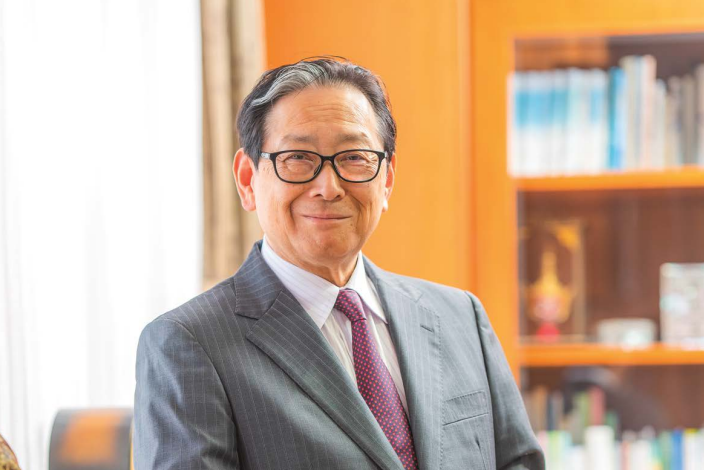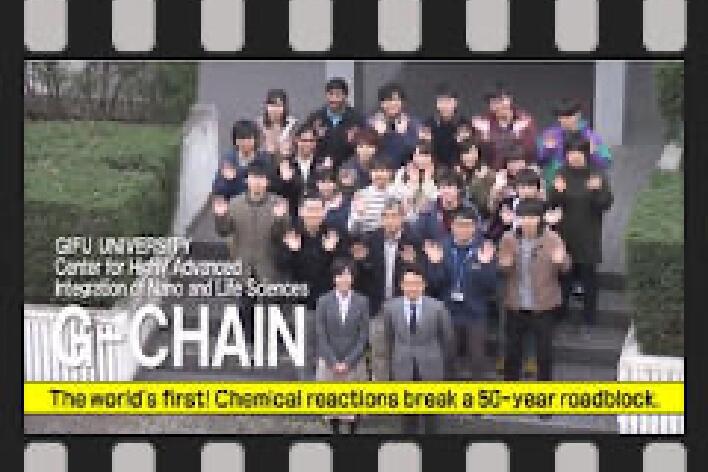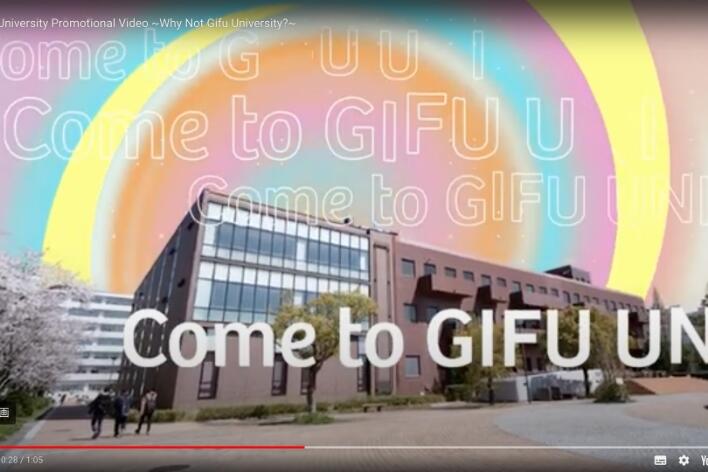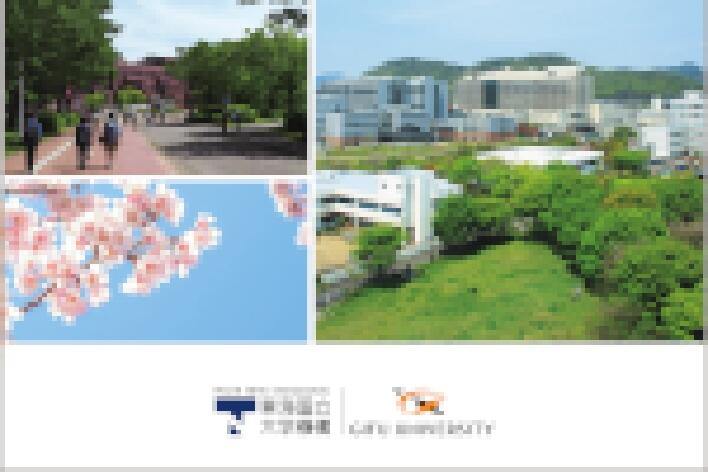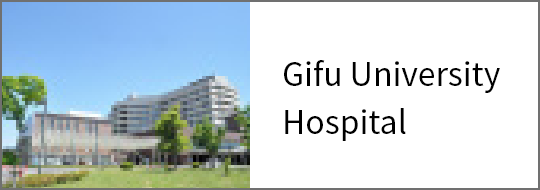President's New Year's Greetings for 2025
Happy New Year!
I hope this year brings joy, happiness, and prosperity to every member of Gifu University.
The year 2024 began with the devastating Noto Peninsula mega-earthquake, followed by a series of heavy rains and massive flooding, growing global instability, and a change in government in Japan. Despite these hardships and challenges, we drew great confidence and courage from the excellent performances of Japanese athletes in the Paris Olympics and Paralympics last summer, the remarkable accomplishments of Shohei Ohtani, a Japanese professional baseball player renowned for his exceptional skills as a unique two-way player in Major League Baseball, and the awarding of the 2024 Nobel Peace Prize to the Japan Confederation of A- and H-Bomb Sufferers Organizations ('Nihon Hidankyo') for its grassroots efforts in raising awareness of the humanitarian impact of nuclear weapons and in advocating for a world free of nuclear arms.
Meanwhile, in our country, where the population continues to decline, the necessity for collaboration and integration among universities has become increasingly apparent. To share "human resources and knowledge" within our communities, we have come to believe that individual universities must transform from isolated entities into a collective foundation or platform that supports the region and society as a whole.
Gifu University, as a new model for the future of national universities in Japan, underwent a significant transformation in April 2020 with the management integration with Nagoya University to accelerate reform and development. Following the value creation model T-PRACTISS1 advocated by the Tokai National Higher Education and Research System, Gifu University has united the efforts of all its faculties, graduate schools, and departments to establish and vigorously pursue the 'MLIE Concept' - Migration, Laboratory, Innovation, Education - striving to advance the five objectives of 'Creation of Businesses and Community-Building,' 'Product Manufacturing,' 'Food Manufacturing,' 'Development of New Medical Systems,' and 'Human Resource Development.' Over the past three years, we have successfully secured eight support measures related to the Cabinet Office's 'Package for Comprehensive Promotion of Research Universities with a Regional Core and Distinctive Characteristics,' which has provided a strong tailwind for our efforts. We believe that we have firmly established a solid foundation towards the realization of the MLIE Concept during this period.
By taking advantage of Gifu University's strengths, we have identified three key areas based on comprehensive knowledge: 'Life Sciences,' 'Manufacturing,' and 'Environment and Energy.' Our initiatives are driven by four strategic pillars: 'Education and Human Resource Development,' 'Research and Value Creation,' 'Social Collaboration and Industry-Academia Partnership,' and 'International Development.'
Now, let me reflect on the year 2024.
1. In the field of Life Sciences, significant advancements have been made in glycan research at the Institute for Glyco-core Research (iGCORE) and in the development of innovative drug discovery seeds at the Center for One Medicine Innovative Translational Research (COMIT), which showcases close collaboration among medicine, pharmacy, veterinary science, and engineering. In glycan research, progress is anticipated in the global standardization of glycan measurement and new insights into dementia. At COMIT, the 'Integrated Non-Clinical Research Facility for Medicine, Veterinary Science, and Pharmacy2' funded by the Tokai National Higher Education and Research System Commons Bond3, is scheduled for completion in March 2025, and is expected to accelerate the center's research activities. Additionally, under the Fusion Oriented Research for Disruptive Science and Technology (FOREST) by the Japan Science and Technology Agency (JST), a total of seven researchers from the life sciences field, including two in the 2023 fiscal year, have been selected, positioning Gifu University among the top regional universities in the life sciences research field.
2. In the field of Manufacturing, the nation's first Intelligent Production Technology Research & Development Center for Aerospace (IPTeCA) was opened in collaboration with local governments and regional industries. In the 2024 fiscal year, the center, in partnership with Kawasaki Heavy Industries Ltd., Subaru Corporation, and Mitsubishi Heavy Industries Ltd., was selected for the leading research programs of the New Energy and Industrial Technology Development Organization (NEDO). Furthermore, Gifu University is advancing initiatives to implement research outcomes in society, such as smart die casting and new carbon fibers, contributing to the leap forward of regional manufacturing industries. The establishment of the sustainable technology innovation hub for Seki Cutlery (Seki City, Gifu Prefecture) and the 'Manufacturing Management Course4' to be launched in April 2025 within the School of Social System Management are also significant achievements.
3. In the field of Environment and Energy, Gifu University established the Center for Environmental and Societal Sustainability (CENSS) in April 2024, aiming to mitigate climate change and achieve carbon neutrality. With support from JST and NEDO, Gifu University is advancing research in smart energy management involving hydrogen and ammonia, as well as plasma technology, in partnership with Nagoya University.
4. In the realm of Education and Human Resource Development, Gifu University received two substantial budgets from the government last year. Firstly, under the advanced human resource development support projects, we were able to increase the number of students in the information technology field. We received support amounting to approximately 70 million yen annually for ten years, allowing us to admit 80 undergraduate and 50 graduate students each year, fostering the development of advanced IT specialists. Secondly, for the support of doctoral students, we secured the Support for Pioneering Research Initiated by the Next Generation (SPRING) of JST, which provides up to 2.9 million yen annually for living expenses and other support. Additionally, the School of Social System Management will establish a graduate school in the 2025 academic year, and the Faculty of Applied Biological Sciences is undergoing significant organizational restructuring, marking the beginning of comprehensive university reforms. For 'Gifu Region Human Resource Development Program' (Gifu University version of MEXT's Supereminent Program for Activating Regional Collaboration (SPARC)) to establish academic infrastructure for regional revitalization, Gifu University was recognized by the government as a university collaboration promotion corporation in March 2024. This recognition allows us to offer joint courses with Chubu Gakuin University and Gifu City Women's College, promoting educational reform through inter-university collaboration. We anticipate further cooperation from additional institutions in the future. In collaboration with the Gifu Prefectural Government, the 'Gifu Space Project Study Meeting5' has seen a total of 549 students participate in the 'Space Engineering Seminar' over its nine-year history as a high school-university collaboration project. The small satellite design, manufacturing, and launch project is progressing smoothly, with the flight model jointly created by high school and Gifu University students, already handed over to the Japan Aerospace Exploration Agency (JAXA). It is scheduled to be launched into orbit by SpaceX through the National Aeronautics and Space Administration (NASA) in April 2025. The 'Gifu Women Scientists' Support Project (Habataki Project)6' was also a great success.
5. In the domain of Social Collaboration and Industry-Academia Partnership, Gifu University has expanded its cooperation with local governments. By October 2024, Gifu University successfully concluded comprehensive partnership agreements with the Gifu Prefectural Government and all 42 municipalities within the prefecture, marking the beginning of a new phase of social collaboration under the unified 'All Gifu' framework. In terms of industry-academia collaboration, Gifu University is working to foster new innovations at the Tokai Open Innovation Complex Gifu Site, which was established in February 2024 on campus as a regional hub for industry-academia open innovation. Regarding entrepreneurship education, many Gifu University students, including those from the Startup Club, have achieved notable successes in multiple business competitions. By 2024, they have been presented numerous awards, including the Minister of Education, Culture, Sports, Science and Technology (MEXT) Award, demonstrating their consistent accomplishments. We are expecting that their innovations will further fuel industry-academia collaboration in the future.
6. In the field of International Development, Gifu University is making significant efforts to promote the global circulation of knowledge. Building on the success of our joint degree programs (JDP) with the Indian Institute of Technology Guwahati (IITG, India) and the National University of Malaysia (UKM, Malaysia), we are expanding new exchanges by partnering with institutions such as the University of South Florida in the United States, the University of Lille in France, and Vytautas Magnus University and Kaunas University of Technology in Lithuania. Additionally, we have initiated exchanges with Samarkand State Medical University in Uzbekistan and are advancing collaborations in energy engineering with the International University of Rabat (UIR) in Morocco.
Thus, the year 2024 has been a year of numerous major successes.
Let me share my aspirations for 2025.
The Tokai National Higher Education and Research System (THERS) has entered a period where it must consider its direction for the next 10 to 20 years. THERS has achieved improved efficiencies in governance, crisis management, human resources, financial systems, and startup support as a springboard. It also has supported the activities of six research hub collaborations while taking advantage of the strengths of Gifu University and Nagoya University. It is imperative for us to continue to reform and develop these initiatives under the framework of THERS.
Gifu University must utilize its unique strengths to contribute to regional revitalization and aim for further internal development. Looking ahead to the next decade, we aspire to undergo a complete transformation into a world-leading co-creation university focused on societal implementation. By collaborating and co-creating with global enterprises, we are proliferating and accelerating the creation of new innovations. Through these activities, Gifu University seeks to evolve into a university that generates new research challenges, creates a virtuous cycle of fostering education and human resource development, and the advancement of regional industries.
The foundation of our efforts to attain the above challenges lies in the manufacturing hubs such as the Intelligent Production Technology Research & Development Center for Aerospace, the Center for Advanced and Smart Die Engineering Technology (G-CADET), and the Gu Composites Center.
Our endeavors extend beyond manufacturing to include collaborations with the humanities and social sciences, as well as fields such as healthcare, food sciences, social infrastructure, energy, and AI. We implement our achievements across the entire university to foster societal implementation and human resource development.
In 2025, the Gifu Interchange on the Tokai-Kanjo Expressway will open. I hope that we can all use it as fresh impetus in our work towards functional reforms within the university and infrastructure development, so that the progress of Gifu University promotes regional development, transforming the Yanagido Campus area into a life sciences and manufacturing innovation park in the near future.
I truly appreciate the great and tireless efforts that were made by every member of Gifu University to realize its outstanding accomplishments in 2024, and I look forward to working closely with every stakeholder in the university to bring our vision for 2025 to fruition.
I would like to conclude my New Year's greetings by wishing every one of you the very best in 2025.
1) Plan to Renovate Area Chubu into Tech Innovation Smart Society
2),4),5) English name is tentative.
3) a means of raising funds to address social issues and achieve well-being
6) The Habataki Project supports female students in taking science courses and is promoted by JST. Its major objectives are to secure diversity in research to convey the advantages of science studies to female junior, and senior high school students, their guardians and schoolteachers within Gifu Prefecture for the creation of 'gendered innovations,' and to help build future career paths and present role models for female researchers.
January 6, 2025
YOSHIDA Kazuhiro, President of Gifu University
